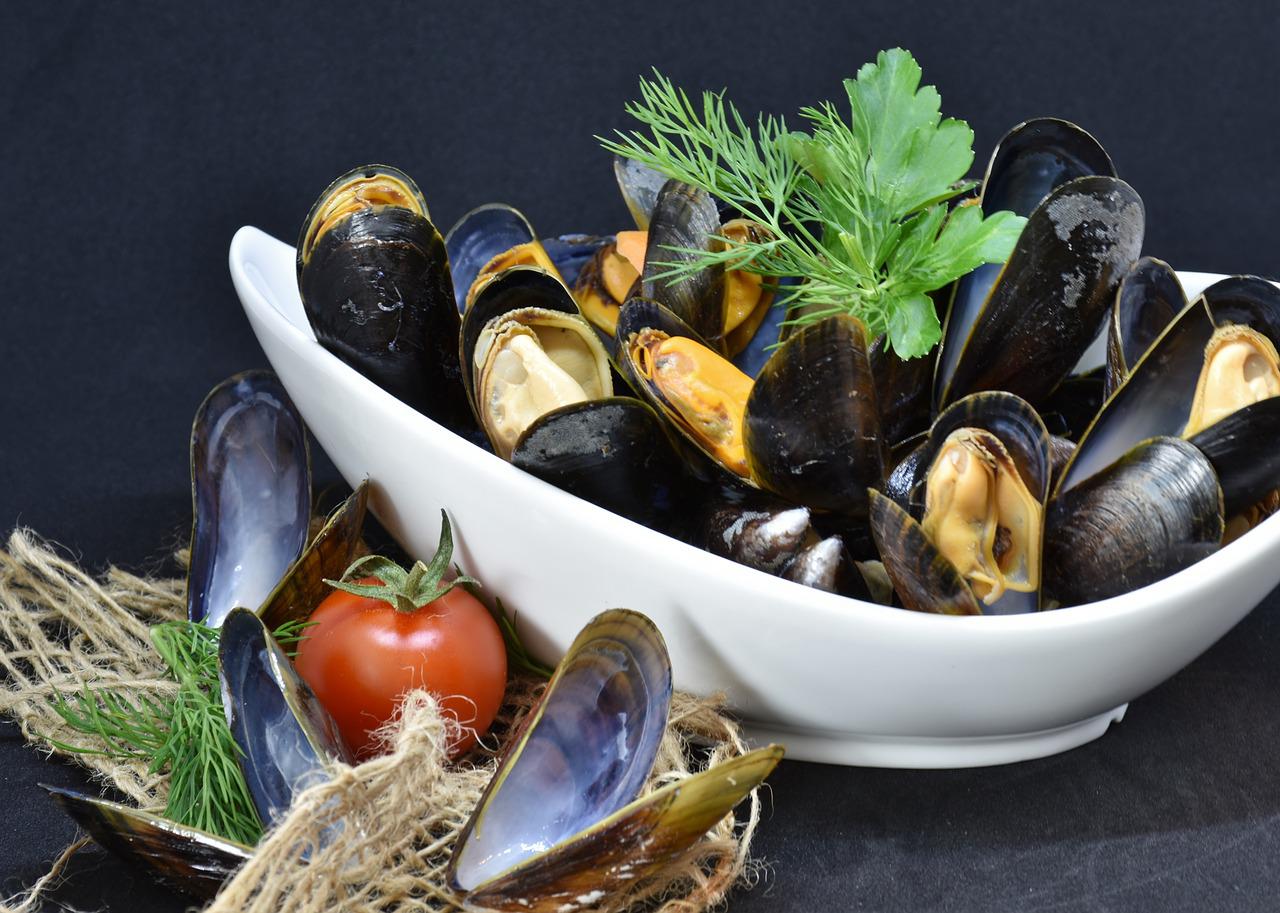Can Dogs Eat Mussels? (Is Their Love of Seafood Healthy?)
Seafood is undoubtedly delicious but can dogs eat mussels? It is common to be a seafood fanatic, especially among dogs. Crab meat, scallops, and shrimp are seafood that most people and pets love.
But how about mussels? This species shares many characteristics with clams. Do you like mussels? Have you ever wondered if you can feed them to your dog? Are mussels safe for dogs?
That question has a simple answer to the question can dogs eat mussels is YES. Mussels are safe for dogs to eat when properly prepared. Not only is it safe, but it is also healthy. Let’s learn more about mussels’ benefits for dogs.
Benefits of Mussels for Dogs
1. Low Calories
It is healthy to give your pet low-calorie treats. It is important to control your dog’s calorie intake. That’s because over 53% of dogs are either obese or overweight. This can lead to many health issues for your dog.
You should note that dog treats with mussels contain only eight kilocalories each treat. Therefore, you can feed your dog 1-2 mussel treats daily. Mussels are given to your dog as treats as an addition to your dog’s daily food.
2. No Harmful Additives
Chemical preservatives, artificial flavors, and artificial colors in dog food and treats have a lot of negative implications. Even moistening agents are harmful to your dog. As a responsible and compassionate pet parent, you should avoid using products with harmful additives.
Some common elements to steer clear from are as follows:
- BHA and BHT.
- Caramel color with 4-MIE (4-methylimidazole).
- Propylene glycol.
3. Vitamins and Minerals
Mussels are an excellent source of nutrients and vitamins for dogs. They contain more potassium, iron, phosphorus, magnesium, and calcium than a chicken breast or a T-bone steak.
They also have a high concentration of selenium. Selenium is a mineral that promotes proper thyroid hormone metabolism, reproduction, infection and oxidative damage resistance, and DNA synthesis. In addition, mussels also contain Vitamin A, which benefits the immune system, skin, eyes, and red blood cells.
The benefit of whole-food minerals and vitamins is that they are more easily absorbed. Unlike those obtained from synthetic minerals and vitamins that sometimes are included in dog treats and meals.
4. Fat and Omega Fatty Acids
Mussels are high in healthy fats for dogs as well. Omega fatty acids are among them. Fats in the body help to boost cellular function. They are responsible for the formation of cell walls as well as the outer coating of nervous system tissue. Fats also help to increase the absorption of fat-soluble vitamins.
The two omega-3 fatty acids found in mussels are DHA and EPA. Both have powerful anti-inflammatory capabilities. This is beneficial to the nerves, skin, and joints.
Fat also has a very enticing taste for dogs. As a result, fats in their diet can encourage them to eat. Unfortunately, many dog food and treats are loaded with fat that has been kept with chemical preservatives such as BHA and BHT, which are carcinogenic. So steer clear of this type of dog food.
5. Protein
Mussels, without a doubt, are high in protein. Protein accounts for up to 65 percent of the weight of a mussel. Another thing to consider is that mussel flesh protein is highly bioavailable. That means humans and animals can easily absorb the protein. The protein is important for developing body tissues.
So now you know why and how protein from whole foods is more bioavailable when compared to protein derived from processed foods. Whole food includes meat derived from chicken, lamb, and other sources. Furthermore, dog food kibbles, snacks, and canned items are primarily made from whole-meal protein.
How to Feed Mussels to Dogs?
1. Frozen or Fresh Mussels
You can give defrosted mussels to your dog. Just remember to remove the meaty piece from the shell before serving. If you don’t want your dog to eat raw mussels, steam them instead. However, this takes time, work, a small amount of money, and freezer space.
Sometimes picky eaters won’t eat cooked or uncooked mussels. If your dog is one of them, you should consider feeding them in the other two forms mentioned below.
2. Freeze-Dried
This is a simple method for including mussels into your dog’s diet. If you know your dog will appreciate it more as a treat, the freeze-dried version is the ideal option.
3. Powder Mussels
You can easily include powder mussels into your dog’s meals. The powdered version is made from the raw version of the food. This means that the health benefits remain the same. Just make sure that the treats are safe for dogs.
Conclusion
The final word is that not all dogs like mussels. Some pets may enjoy them. While others will dislike the flavor. There is no need to force this food into the diet if your dog doesn’t like them. Perhaps your dog dislikes their unusual texture or strong odor.
However, if your pet is picky, opt for freeze-dried muscles. Even the powdered form is an effective and simple way to incorporate the reward into your dog’s daily diet. Mussels are high in natural protein and omega fatty acids. They promote your dog’s healthy coat and skin.

